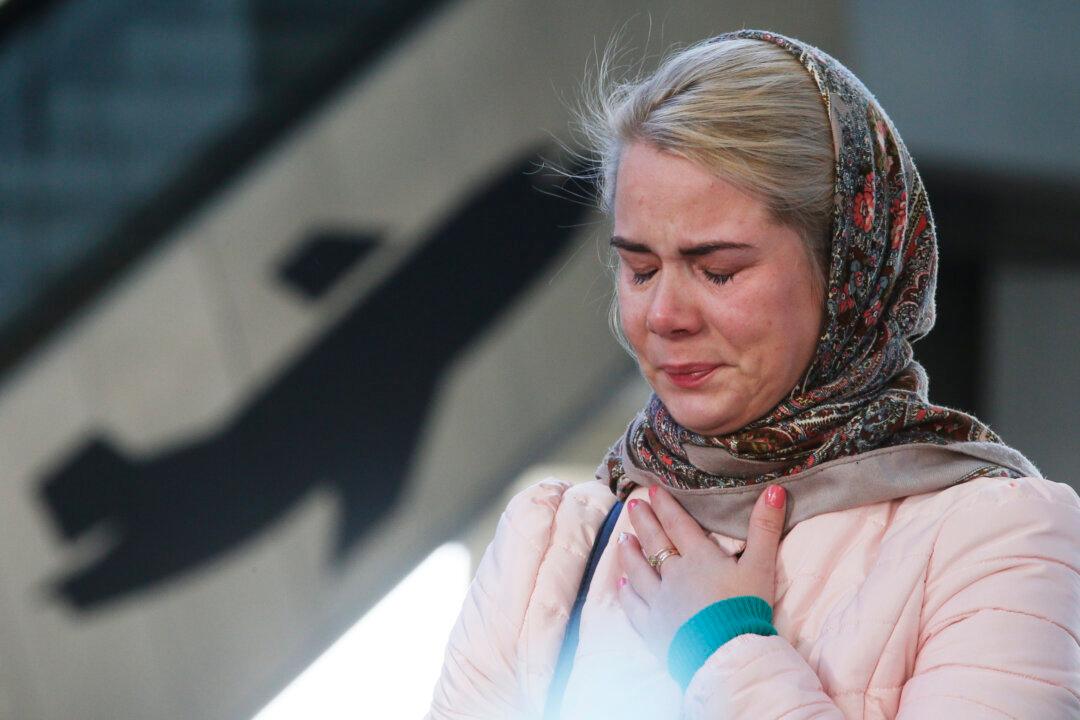Tearful Relatives Identify Victims of Plane Crash
The first 10 bodies of victims of Saturday’s plane crash over Egypt were identified by their families Tuesday, a string of tearful relatives leaving the city crematorium

A woman reacts at an entrance of Pulkovo airport during a day of national mourning for the victims of the plane crash, outside St. Petersburg, Russia, Tuesday, Nov. 3, 2015. AP Photo/Dmitry Lovetsky
|Updated:




